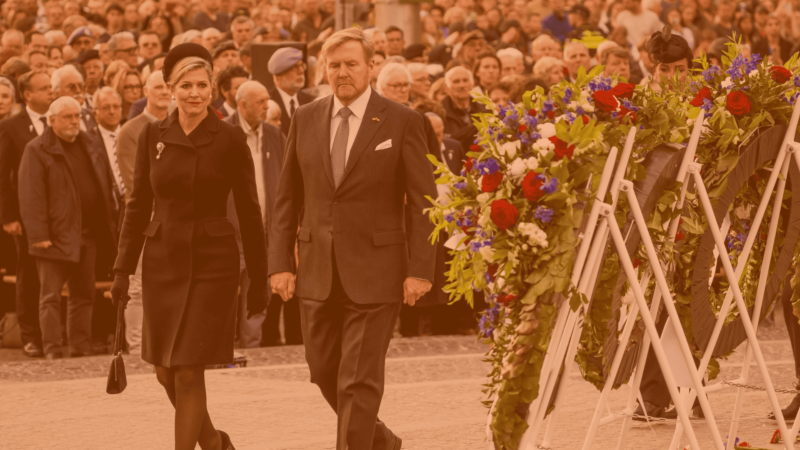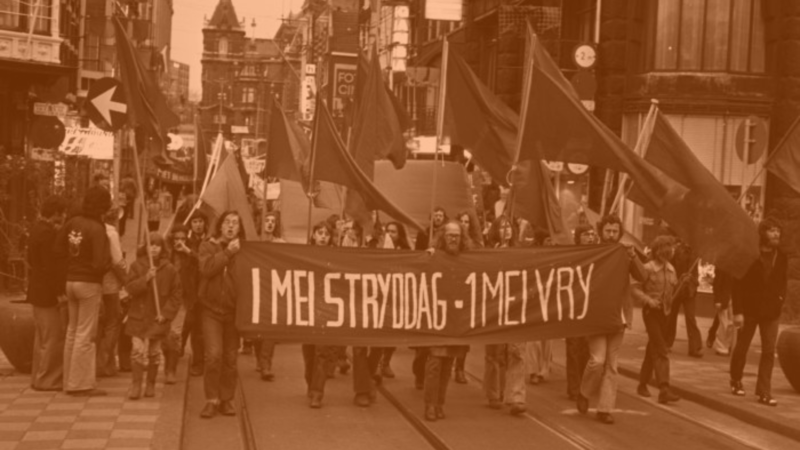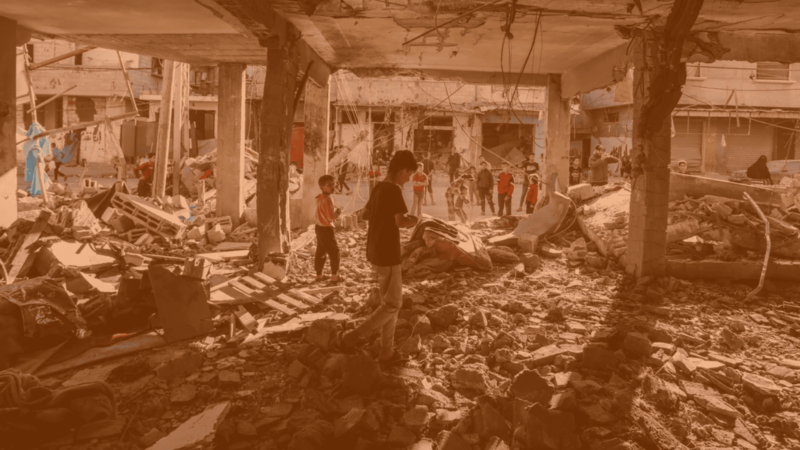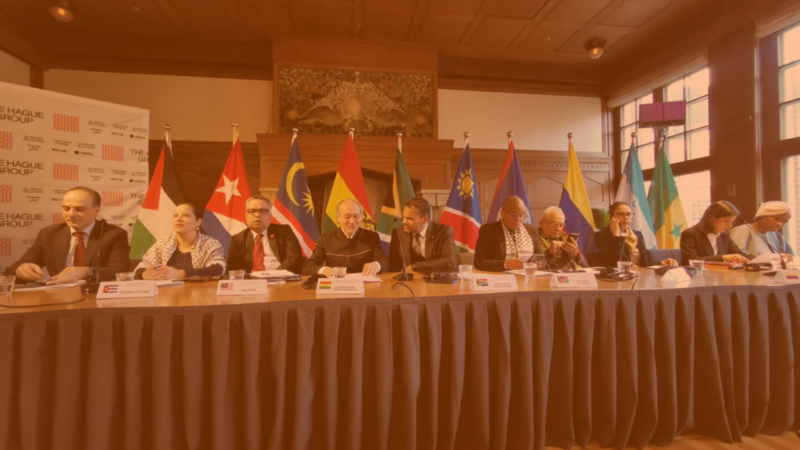De Duitse federale verkiezingen komen eraan, lees de beleidsvoorstellen van DiEM25.
15 sept 2017, Artikelen
Duitsland is doorslaggevend. Het is, en moet zijn, een land met een centrale plaats in het Europese project. Maar dit project zit in de penarie vanwege een politiek falen om de belangen van de meeste Duitsers op één lijn te plaatsen met die van de meeste andere Europeanen. Duitsland heeft dus een nieuw discours nodig en nieuwe beleidsagenda’s om een nieuwe politiek door heel Europa te activeren – een politiek beleid dat wèl de gemeenschappelijke belangen van de meerderheid van de Europeanen weerspiegelt.
Maar wie gaat het nieuwe discours en de nieuwe beleidsagenda’s verspreiden? De campagne voor de komende Duitse verkiezingen is tot nu toe niet erg hoopgevend.
Daarom, met de federale verkiezingen van 24 september 2017 in aantocht, heeft DiEM25 het gemis erkend en is in actie gekomen.
En wel als volgt:
We hebben een voorstel ingediend bij het Duitse Provisional National Committee van DiEM25 om te verspreiden onder de DSCs (DiEM25 Spontaneous Collectives) in Duitsland. Zij hebben het document doorgesproken en overal waar mogelijk naar publieke bijeenkomsten meegenomen, het verbeterd en, belangrijkst, het overhandigd aan gelijkgestemde kandidaten voor de Bundestag om het te onderschrijven en zich eraan te verbinden, indien gekozen. Dit alles geschiedde op dezelfde manier waarop onze Franse leden zich hebben ingezet voor hun parlementsverkiezingen afgelopen juni.
Onze Duitse activisten hebben hard gewerkt en stellen momenteel een lijst op van kandidaten die bereid zijn de door DiEM25 voorgestelde beleidsagenda voor Duitsland over te nemen. Meer dan 40 kandidaten hebben onze voorstellen al overgenomen! We zullen de lijst naar de verkiezingen toe publiceren.
Hieronder volgt ons originele voorstel, “8 proposals for Germany’s Progressives,” in het Engels, omdat het voor de verkiezingen niet lukt om alles te vertalen. Onze excuses voor het ongemak.
8 proposals for Germany’s Progressives
- On Germany’s social market model
Germany rose to envy-of-the-world status thanks to a social contract that offered the working class strong protection (and seats on the boards of directors of large companies) for its conformation to a flexible rule-bound, free-market environment in which business could get on with it. In conjunction with local banks linked to differently sized industries, and in a positive global environment, the so-called “German economic miracle” unfolded.
However, since the creation of the euro and the banking crisis it caused, German economic competitiveness has increasingly been bought at the expense of Germany’s social market model. The casualisation of many workers, the repression of wages, the doubling of the proportion of ‘working poor’ Germans, the Christian Democrats’ increasingly confident attempt to limit social spending and public investment – all these developments are quietly turning Germany’s social market model into an empty shell that only resembles what German social democrats had once thought they had achieved. Moreover, more ‘structural reforms’ that will further reduce the life prospects of millions of Germans are currently being tried and tested elsewhere in the Eurozone.
We call on progressive candidates in the German elections to:
Explain to the people of Germany that the (limited) achievements of the German model are under serious threat and that, moreover, the developments in the rest of the eurozone are enabling the dismantling of the German social market tradition. Defending and making necessary improvements to Germany’s social democratic institutions and model goes hand in hand with opposing the coalition’s policies in the Eurozone.
- On the Euro
Progressive German candidates are already ringing alarm bells across the Federal Republic, to warn voters of a gross and dangerous falsehood: the notion that Germany is doing well out of the euro crisis and that its leaders have shepherded the European flocks well and wisely during it. The reason is simply: Precisely the opposite has been the case. Germany is much weaker as a result of the crisis and Europe is at an advanced stage of disintegration as a result of how the German government has mis-managed Europe’s social economy and its resources.
Yes, it is true that the crisis has created a large surplus for the federal budget (due to the massive suppression of interest rates charged to roll over Germany’s debt) and a huge influx of capital into the Frankfurt banks (due to capital flight from weaker economies whose citizens fear Grexit, Italexit etc.) But these surpluses are a sign of weakness, not strength. They are the sign of massive current and future hardship of a majority of Germans. To have the German establishment celebrate them as indicators of economic health is to add insult to injury.
When a country like Germany reports its lowest level of investment (as a percentage of national income) at a time when investors are paying its government to borrow and savings are at the highest level in the nation’s history… When that country’s elites insist that the various surpluses must be maintained through further wage repression of the squeezed German working class, as a means to undermine the French and Italian working classes and give an excuse to the French and the Italian governments to squeeze their own workers… When in a country like Germany everyone is a saver (governments, families and companies save more than they spend/invest), thus being forced to entrust their hard-earned savings to other countries that they must then control via austerity and threats… When an aging country that feels a need to save for its future is creating the economic forces pushing interest rates below zero, thus depleting its own savings… When all this happens, you know that the country in question is in trouble.
We call on progressive candidates in the German elections to:
Make German voters aware of one basic thing: We are all in this together! No country is ring-fenced from the crisis. Germany cannot hide behind its surpluses without crushing its workers and its pension funds. If our monetary union is in the clasp of vicious imbalances, misery is shared between the weaker citizens everywhere – whether they live in surplus or in deficit countries.
- On a European New Deal
It is because we are all in this together, because there can be no solution for Italy’s or Greece’s problems that does not include an end to German mini-jobs, ‘uberisation’, underinvestment, etc., that Germany needs a European New Deal.
Now, a majority of Germans have been convinced that a European New Deal means Germany paying for the rest of Europe. They are right to think that Germany is rich but not that rich. However, they are wrong to believe that a European New Deal means German taxpayers paying more to fund the social welfare, investment projects and banking systems of the rest of Europe. To demonstrate this, and the way forward, DiEM25 has put together its European New Deal Policy Paper.
We call on progressive candidates in the German elections to:
Initiate a large social, political and cultural debate around the idea of a European New Deal, and use our European New Deal Policy Paper as a framework for this transformation.
- On European democracy
Most Germans want to be embedded in a democratic Europe. But at the same time, most German citizens fear that the price their country is being asked to pay for a democratic EU is one that Germany, however rich it may be, cannot afford.
DiEM25’s European New Deal argues that this is not the case! Indeed, the price a majority of Germans are today paying for the lack of a functioning democracy at EU level is large, and wasted. To move beyond the politics of fear and despair in line with our European New Deal, German progressives should also discuss the idea of a constituent assembly process envisaged by DiEM25’s Manifesto that can open a broad social, political and cultural process towards a proper democratic European Constitution.
We call on progressive candidates in the German elections to:
Start a debate on the idea of a European constituent assembly process and of a Democratic European Constitution.
- On the Green Transition
German governments and industry have made great strides in producing and sponsoring renewables, recycling and Green practices. However, the key to the Green Transition that Europe and the planet needs is massive investment. And massive investment in the green technologies and processes of the future is impossible outside the macro-financial framework of a European New Deal agenda as outlined by DiEM25.
We call on progressive candidates in the German elections to:
Deepen and expand their commitment to the politics of a democratic social-ecological transformation by putting forward an agenda that combines austerity cancellation, financial sector regulation and green investment-led recovery, and which therefore could serve as a framework for this transformation.
- On technological sovereignty
German industry prides itself on its technological progress. Nonetheless, when it comes to digital technologies, despite German industry’s expertise, Germany’s companies, society and government relies on Silicon Valley’s platforms in a manner that is harmful to technological sovereignty.
We call on progressive candidates in the German elections to:
Demonstrate to voters that Europe’s technological future cannot be left to German and American multinationals. Our economies and, indeed, our democracies depend on developing open source platforms that enhance our productivity and capacity to work together, without being exploited by the world’s latest form of monopoly power.
- On refugees and migration
Merkel’s initial positive reaction to the influx of Syrian refugees in the summer of 2015 has been vilified and classified as a spontaneous error. Her capitulation to ‘realpolitik’, and her despicable subsequent treaty with the Turkish President, has completed a nationalist and racist turn across Germany’s establishment.
But civil society is resisting. Its resistance must be celebrated and reinforced!
We call on progressive candidates in the German elections to:
Take Merkel to task for having betrayed her own initial instinct to “let them in”. Put forward tangible policies that are true to the spirit of “let them in” and which spread across Europe a sensible, humanist and realistic approach – not only to refugees but also economic migrants. Aim to stop the EU-Turkey refugee deal.
- On maintaining peace
Merkel, after a recent meeting with President Trump, announced that Europe must take its fate in its hands and no longer “rely on the kindness of strangers” for its defence. This is correct. However, progressives should beware: We do not need a European substitute of NATO. We do not want a European pact spreading belligerence and weapons near and far. We do not want another shameful European intervention like in Libya in 2011. We do not want a European threat that gives Putin more excuses to clamp down on Russian democrats.
We call on progressive candidates in the German elections to:
Demand blocking the sale of weapons to repressive regimes, as many progressives already do. With worldwide arms sales up 7 per cent to €4.03 billion in the first half of 2016, Germany is responsible for conflicts around the world. With arms sales to Turkey, Saudi Arabia, the United Arab Emirates, Algeria and others, Germany is directly supporting repressive regimes and wars, which subsequently lead to migration and refugee crises.
Fight for an Internationalist Europe that treats non-Europeans as ends-in-themselves. A Peaceful Europe committed to all efforts to de-escalate tensions in its East and in the Mediterranean, acting as a bulwark against the sirens of militarism and expansionism and proving its commitment by blocking the sale of weapons. An Open Europe that is alive to ideas, people and inspiration from all over the world, recognising fences and borders as signs of weakness spreading insecurity in the name of security. A Europe that finally acknowledges its responsibility for the historical crimes of colonialism and imperialism. A Liberated Europe where privilege, prejudice, deprivation and the threat of violence wither, allowing Europeans to be born into fewer stereotypical roles, to enjoy even chances to develop their potential, and to be free to choose more of their partners in life, work and society.
Vertaling door Niki Best
Do you want to be informed of DiEM25's actions? Sign up here















